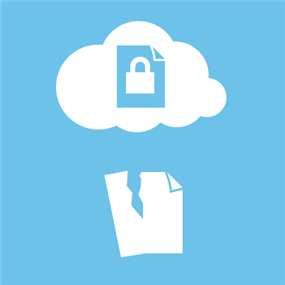 Pop quiz time. What’s more secure; financial records locked in a filing cabinet or financial records stored in the cloud?
Pop quiz time. What’s more secure; financial records locked in a filing cabinet or financial records stored in the cloud?
If you don’t understand how cloud security works, you probably said the filing cabinet. It’s time for a little mythbusting about how secure your paperless office could be.
Last week, Cindy Bates posted on the Microsoft SMB Blog about the benefits of a completely paperless office. Like Delta Airlines, who recently switched to the paperless cockpit, it’s possible for any office or organization to ditch the dead trees and move entirely into the digital space.
One of the first questions decision makers ask when considering the paperless office is “how secure is this?” It’s a fair question, so let’s consider Delta’s paperless cockpit example and overall data security.
The problem with paper is that, well, it’s paper. Paper gets lost, it burns, it can be misfiled and disappear. It’s only as secure as its physical location. If that location is a locked filing cabinet (or a vault under Fort Knox), if someone really wanted to get to it, they could.
A file in the cloud cannot burn, be stolen, accidentally left behind in a restroom, or any other number of things that could affect a hard copy of important information. For a recent example, take a look at the Internet Archive, whose scanning facility in San Francisco recently caught fire. Although no data was stored in their San Francisco office, if it had been, cloud redundancies would have prevented any loss.
But what about a data center, such as what powers Windows Azure or Office 365? Let’s start with physical security: data centers are monitored 24 hours a day, 365 days a year. A team of ninjas could, in theory, break in, but they’d still have to know which of the thousand machines contained your exact data—so unless you’ve upset the cast of Ocean’s 11, it’s significantly less likely than an office fire that could destroy physical data.
In addition, with Office 365, data transmitted across networks is encrypted—so if some agency (or other villain) happens to tap the wires, they still won’t be able to read your files.
While a move to a paperless office does not entirely guarantee data security—there are still those ninjas to think about—it is significantly more secure than leaving your information in paper form, where it could be destroyed or stolen with greater ease.
It’s just one more reason to go paperless.





